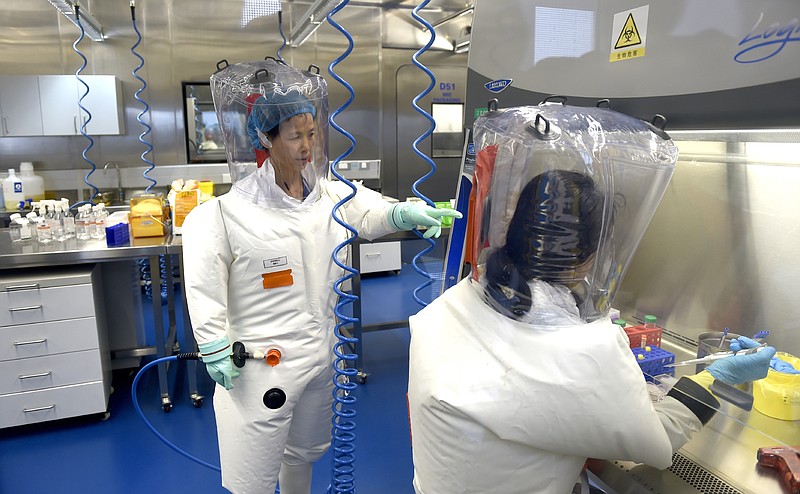If it turns out the COVID pandemic was caused by a leak from a lab in Wuhan, China, it will rank among the greatest scientific scandals in history: dangerous research, possibly involving dubious techniques that make viruses more dangerous, carried out in a poorly safeguarded facility, covered up by a regime more interested in propaganda than human life, catastrophic for the world.
But this possible scandal, yet unproved, obscures an actual scandal: the long refusal by too many media gatekeepers (social and mainstream) to take the lab-leak theory seriously.
Rewind to February of last year, when people such as Sen. Tom Cotton began pointing to disturbing facts: the coincidence of a pandemic originating in the same city where a Chinese lab was conducting high-end experiments on bat viruses; the report that some of the original COVID patients had no contact with the food markets where the pandemic supposedly originated; the fact the Chinese government lied and stonewalled its way through the crisis. Think what you will about Cotton, but these were reasonable observations warranting impartial investigation.
The common reaction in elite liberal circles? A Washington Post reporter called it a "fringe theory" that "has been repeatedly disputed by experts." The Atlantic Council accused Cotton of abetting an "infodemic" by "pushing a debunked claim that the novel coronavirus may have been created in a Wuhan lab." A writer for Vox said it was a "dangerous conspiracy theory."
There are many more examples. But the overall shape of the narrative was clear. On one side were experts like the World Health Organization (WHO): knowledgeable, incorruptible, authoritative. On the other were a bunch of right-wing yahoos pushing a fantasy with xenophobic overtones in order to deflect attention from the Trump administration's handling of the crisis.
Was it outrageous to think the virus might have escaped the Wuhan Institute? Not if you listened to evolutionary biologist Bret Weinstein's scientifically rich explanation of the lab-leak hypothesis - which he delivered almost a year ago on the decidedly non-mainstream Joe Rogan podcast.
Was it smart for science reporters to accept the authority of a February 2020 letter, signed by 27 scientists and published in The Lancet, feverishly insisting on the "natural origin" of COVID? Not if those reporters had probed the ties between the letter's lead author and the Wuhan lab (which science writer Nicholas Wade points out in a landmark essay in The Bulletin of the Atomic Scientists).
Was it wise to suppose the WHO, which has served as a mouthpiece for Chinese propaganda, should be an authority on what counted as COVID "misinformation" by Facebook, which in February banned the lab-leak theory? Not if the aim of Facebook is to bring the world closer together, as opposed to laundering Chinese disinformation.
To its credit, Facebook reversed itself. News organizations are quietly correcting (or stealth editing) last year's reports, sometimes using the new information about Wuhan lab workers being infected in the fall of 2019 with a COVID-like illness. And the public-health community is taking a fresh look at its COVID origin story.
But even now one gets a distinct sense of the herd of independent minds hard at work. If the lab-leak theory is finally getting the respectful attention it deserved, it's mainly because Joe Biden authorized an inquiry and Anthony Fauci admitted to doubts about the natural-origin claim. In other words, the right president and the right public-health expert have blessed the inquiry.
Good journalism, like good science, should follow evidence, not narratives. It should pay as much heed to intelligent gadflies as to eminent authorities. And it should never treat honest disagreement as moral heresy.
Anyone wondering why so many people have become so hostile to public-health pronouncements and science journalists should draw the appropriate conclusion. When lecturing the public about misinformation, it's best not to peddle it yourself.
The New York Times
